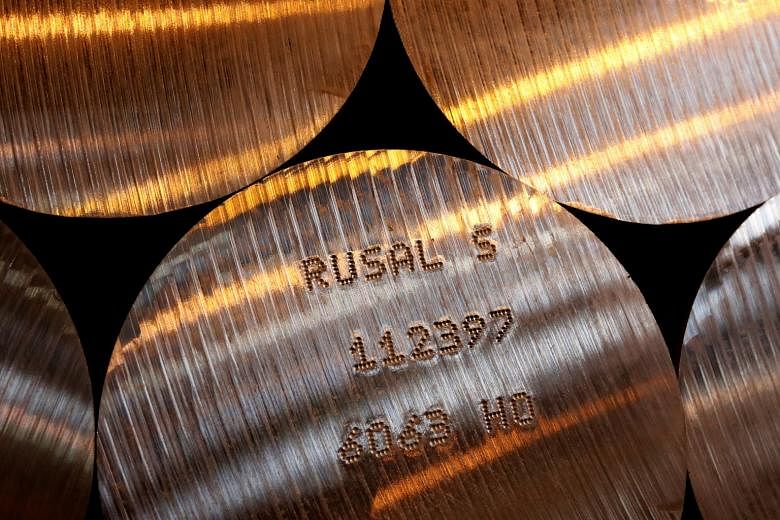LONDON (BLOOMBERG) - Australia’s move to ban alumina exports to Russia has pushed up prices of the so-called everywhere metal.
Aluminium jumped as much as 4.8 per cent on the London Metal Exchange (LME) early on Monday (March 21) as Rio Tinto Group, operator of the Queensland Alumina joint venture with Russia’s aluminium giant United Co Rusal International, said it would comply with all of Canberra’s directions.
Australia supplies nearly 20 per cent of Russia’s alumina and its exports of aluminium ores, including bauxite, to Russia were prohibited on Sunday.
Supplies of the metal - used in everything from cans to airplane parts and window frames - were running low even before war in Europe threw global commodity markets into turmoil. This latest development threatens to add even more inflationary pressure to the global economy.
Australian Prime Minister Scott Morrison said that a ship due to dock this week to collect a load of alumina - the key ingredient used in making aluminium - bound for Russia would not deliver its cargo as he announced the ban on Sunday.
Russia is a key supplier of aluminium to markets including Turkey, China and Japan. The metal rose 4.4 per cent to US$3,529 a ton on the LME as at 10.43am in Singapore and is up around 26 per cent this year.
Rio reiterated that it was in the process of terminating its commercial relationships with Russian businesses following the country's invasion of Ukraine. Rusal holds a 20 per cent stake in the Queensland JV.
Rusal said in a statement that it was evaluating the impact of the ban. Rio plans to stop supplying bauxite to, and buying alumina from, Rusal's Aughinish plant in Ireland, sources familiar with the matter said earlier this month. The company's shares dropped as much as 8.9 per cent in Hong Kong on Monday following Australia's announcement.
While aluminium has not been targeted by global sanctions, Rusal - which needs bauxite and alumina to feed its plants - is facing disruption to its supply chains as companies pull back from doing business with Russia. The company has also slashed output from its Nikolaev alumina refinery in Ukraine due to logistical and transport challenges arising from the war.
Australia said the ban would apply to "all relevant shipments" to Russia, although it is unclear whether Rusal will be able sell alumina from its Queensland mine onto the market, and then buy the feedstock from alternative suppliers. If the Russian company is not able to do this, then prices will likely see more upward pressure.
"The spirit of the sanctions announced would probably suggest that Rusal won't be allowed to profit financially from alumina sales at all, but this is unclear in the current wording," Mr Gavin Wendt, senior resources analyst at consultancy Mine Life, said by e-mail.
Rusal was founded by Russian tycoon Oleg Deripaska, who retains an interest via his shareholding in Rusal's majority owner En+ Group International. The Australian government last week announced a new round of sanctions against oligarchs close to Russian President Vladimir Putin, including Mr Deripaska.
EN+ Group said earlier this month it was considering a potential carve out of Rusal's international business, creating a new company to house its alumina, bauxite and aluminium assets across the globe which would no longer have any Russian ownership.

